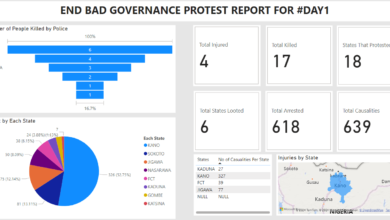How Israel Adesanya Out-Earned Dricus Du Plessis at UFC 305 Despite Defeat

In a thrilling UFC 305 main event, Dricus Du Plessis successfully defended his UFC Middleweight Championship against former two-time champion Israel Adesanya.
Despite losing the fight via fourth-round submission, Adesanya earned a larger payday than the reigning champion.
According to reports, Du Plessis was guaranteed a base salary of $500,000 for the fight, while Adesanya was in line for a guaranteed $750,000. However, a separate report by SportsRush suggests Adesanya’s guaranteed purse was even higher at $1 million, with an additional $32,000 from his sponsors.
The fight marked the first time two African-born fighters competed for a UFC title. It was a historic clash that generated significant interest and revenue.
Rivalry
The rivalry between Du Plessis and Adesanya was marked by controversy over the South African’s comments about being the “real African UFC champion.” This offended Adesanya, who took exception to the remark.
However, after the fight, Du Plessis apologized and referred to Adesanya as a legend, clarifying that he never intended to disrespect his opponent’s African heritage.
The UFC 305 card featured several other notable payouts. In the co-main event, Kai Kara-France earned a $50,000 bonus on top of his $300,000 base pay for his first-round knockout of Steve Erceg, who pocketed $75,000.
Dan Hooker and Mateusz Gamrot each took home $50,000 bonuses in addition to their respective $350,000 and $110,000 base pay cheques for their exciting lightweight contest.
Despite the loss, Adesanya’s larger payday reflects his status as one of the biggest stars in the UFC.
The Nigerian-born fighter’s share of the pay-per-view revenue is expected to be higher than Du Plessis’, cementing his position as the highest-paid fighter on the UFC 305 card
The pay difference between Dricus Du Plessis and Israel Adesanya at UFC 305 can be attributed to several key factors:
Also Read: UFC Heavyweight Championship: Who is the UFC Heavyweight Champion
1. Fighter Status and Popularity
Israel Adesanya is one of the most recognized and successful fighters in UFC history, having held the Middleweight Championship twice and built a substantial fan base.
His popularity translates into higher earnings, as fighters with larger followings tend to command more significant contracts and bonuses.
Adesanya’s established reputation allows him to negotiate higher base salaries and a more considerable share of pay-per-view (PPV) revenues compared to less established fighters like Du Plessis, who is still building his profile in the UFC.
2. Contract Negotiations
Fighter contracts in the UFC are often tiered based on experience, past performance, and marketability.
Adesanya’s contract reportedly guaranteed him a base salary of $750,000, with some sources indicating it could be as high as $1 million, while Du Plessis’s guaranteed pay was set at $500,000.
This disparity reflects Adesanya’s higher tier within the UFC’s payment structure, which rewards fighters based on their marketability and previous accomplishments.
3. Pay-Per-View Revenue
In addition to their base salaries, fighters typically earn a share of the PPV revenue generated by their fights. Adesanya’s bouts have consistently drawn large audiences, leading to substantial PPV sales.
This revenue-sharing model significantly boosts his total earnings, especially for high-profile events.
Given Adesanya’s history of attracting viewers, his share of the PPV revenue for UFC 305 is expected to be higher than that of Du Plessis, further widening the pay gap between the two fighters.
4. Performance Bonuses and Other Earnings
Fighters can also earn performance bonuses, which are awarded for exceptional fights. While both fighters may receive bonuses, Adesanya’s history of delivering exciting performances could lead to him receiving more in this category as well.
Additionally, Adesanya’s endorsements and sponsorship deals, which are often more lucrative for top-tier fighters, contribute to his overall earnings, further highlighting the financial disparity with Du Plessis





